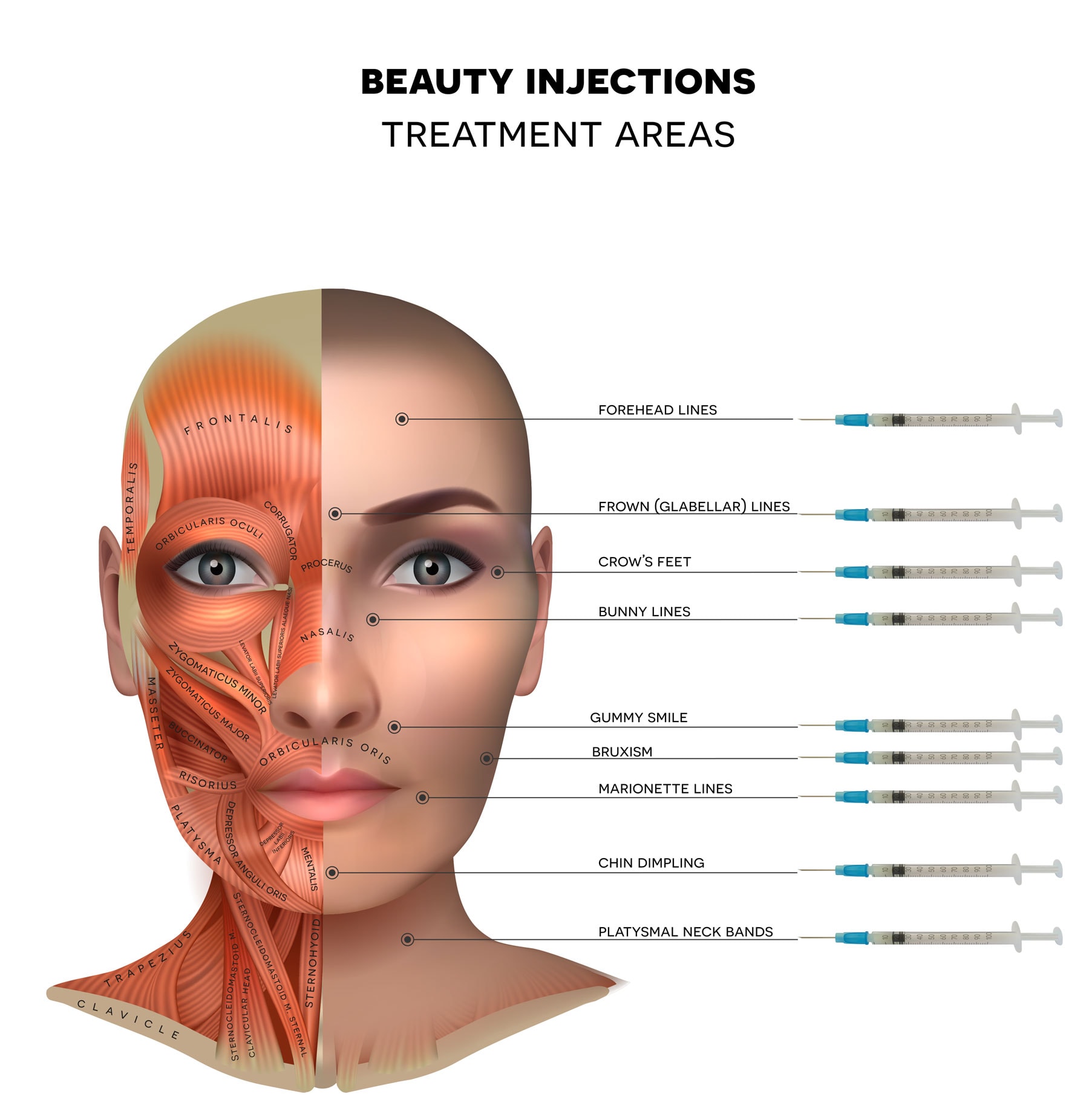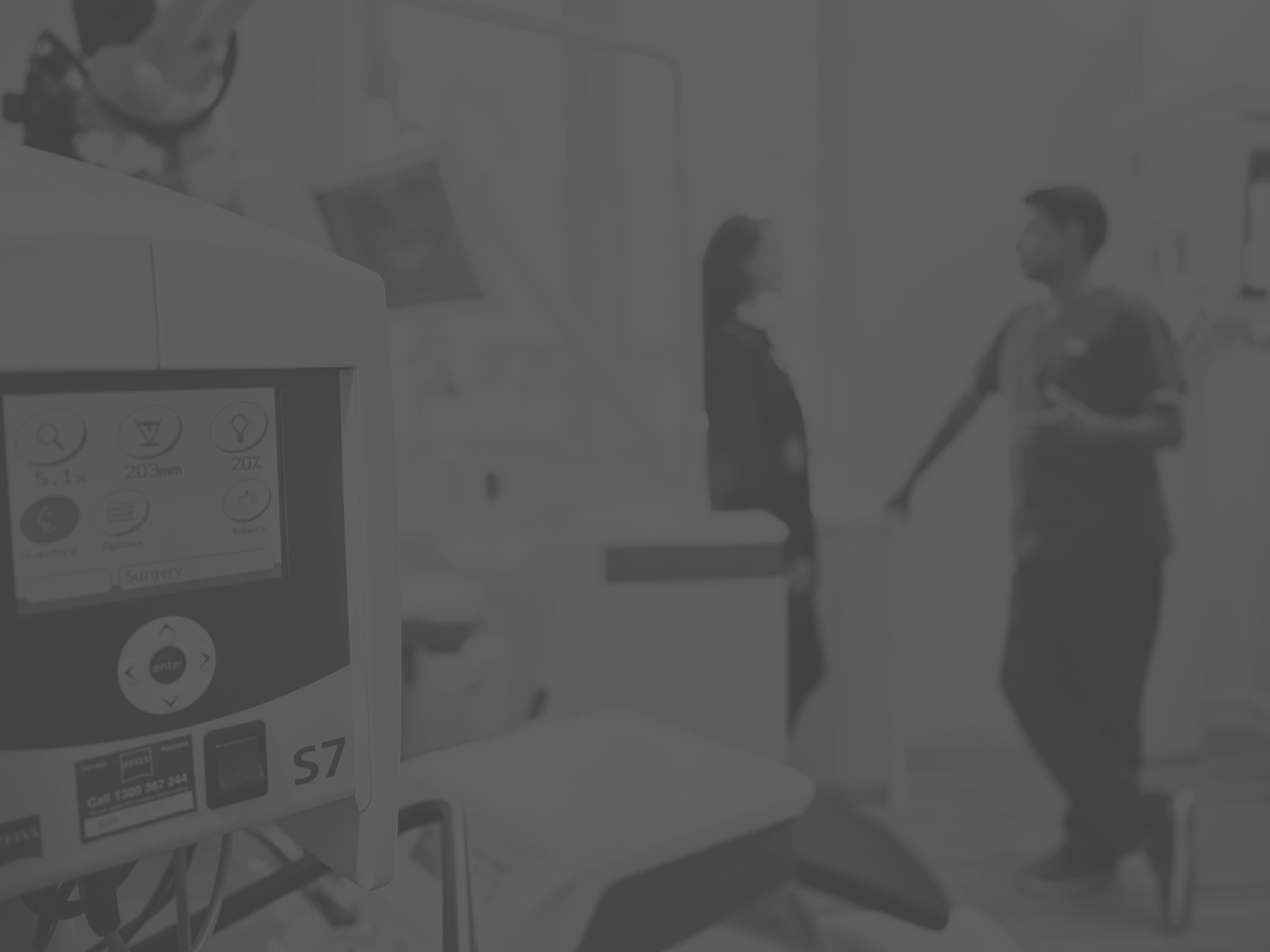
Teeth Grinding Treatment Melbourne
(Bruxism)
Bruxism is described as clenching or grinding of your teeth.
The main muscles involved are the masseter and temporalis but other smaller muscles may also contribute.
Over time, bruxism will result in these muscles getting a workout resulting in making them bigger and stronger.
This in turn will result in headaches, teeth chipping, breaking, becoming hypersensitive or even lead to the tooth dying.
In the past, bruxism during sleep was regarded as pathological or dysfunctional.
This is no longer the case.
Current understanding and consensus states bruxism only requires management if problems (described above) start to arise.
In our previous newsletter we discussed Occlusal Splints as a treatment option to manage bruxism.
In this update, I would like to discuss another adjunctive therapy for bruxism – anti-wrinkle injections or as it is technically known – Neurotoxins.
Neurotoxins
Neurotoxins were first used in plastic surgery for cosmetic purposes in the 1980s.
Since then it has been widely utilized in various fields including dentistry, dento-facial aesthetics, dermatology, ophthalmology, neurology, plastic surgery, pain medicine and general medicine.
The most commonly used neurotoxin is botulinum toxin type A.
It is an injectable neurotoxin, better known under brand names such as Botox Cosmetic®, Dysport® and Xeomin®.
When treating bruxism, botulinum toxin type A is injected into muscle (in most cases the masseter muscle) where it interferes with the way the muscles work.
This reduces the strength of muscle contraction and results in subsequent decrease in the mass of the muscle.
Now that the muscles aren’t as strong, the severity of bruxism is reduced thus minimizing the negatives effects.
Cosmetic Benefit
Masseter muscle enlargement is prominent near the angle of the lower jaw.
It rarely presents as a major health problem but in some patients, it can be painful or become so enlarged that it can cause facial disfigurement.
Injecting neurotoxins into these affected muscles will help reduce the strength and in time the size of these muscles.
As such, a more harmonious facial disposition will result.

Do I Still Need to Wear an Occlusal Splint?
Whilst neurotoxins injections will reduce the severity of bruxism, it does not eliminate the action of grinding or clenching.
This means you will still grind or clench but not as hard as you did before.
Because the team at Signature Dentistry is all about preserving your natural teeth and protecting the dentistry we have provided, we highly recommend that you benefit from both the botulinum toxin type A injections and continue to wear our super comfortable digital splints.
In summary, neurotoxins can reduce the frequency of bruxism episodes, reduce the strength of the masseter muscles and decrease the levels of pain derived from it, which ultimately improves the quality of life of our patients.
Therefore, we can confidently say neurotoxins are safe and effective for treating patients with bruxism.
In patients with severe bruxism, it shows better clinical results than traditional methods such as occlusal splints alone.
The next time you are in for your dental check or hygiene session, don’t hesitate to contact Dr Kasen and the team at Signature dentistry about a neurotoxins treatment for Bruxism.
Prevent Further Wear
Grinding of the teeth and clenching of the jaw are the two main characteristics of bruxism and can occur during the day or at night.
Bruxism is one of the most common known sleep disorders and causes most of its damage during sleeping hours.
Typically, opposing teeth grind against each other causing excessive wear above nomal function.
Teeth wear down and become sensitive and front teeth become very unaesthetic.
Problems associated with Bruxism
- Cracked teeth and filings
- Excessive wear and tear on the teeth
- Broken fillings or fillings not lasting long
- Joint pain and headaches
Signs and symptoms of Teeth Grinding
- Loud grinding sounds during sleep that are very noticeable to sleeping partner
- Headache, jaw joint or ear pain
- Clenching the jaw when angry, anxious or concentrating
- Sensitive teeth
- Cracked or chipped tooth
- Wobbly teeth
Teeth Grinding Causes
Some of the factors that may trigger grinding include:
- Emotional stress, such as anger or anxiety
- Mental concentration
- Physical effort or stress
- Newly erupted teeth especially in babies and children
Bruxism is frequently misdiagnosed or not diagnosed at all, Dr Kasen and the team at Signature Dentistry pay particular attention to the way your teeth are wearing down and are trained to tell the difference between bruxing wear and wear caused by overly aggressive brushing, acidic soft drinks, and abrasive foods.
If you think you suffer from bruxism and would like to make an appointment or if you would like to schedule a consultation to discuss the right treatment for your condition, please contact Signature Dentistry or fill out our online book appointment form and a member of our staff will be more than happy to help you.


